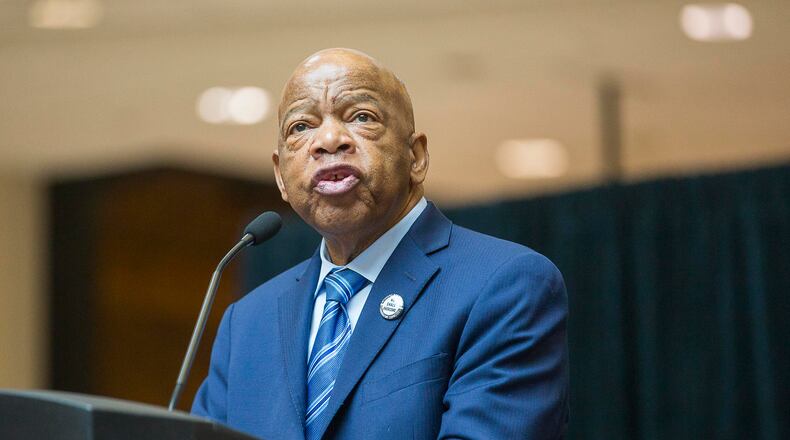Rep. John Lewis announced Sunday that he is battling Stage IV pancreatic cancer and will begin undergoing treatments.
The 79-year-old congressman from Atlanta and civil rights icon said that he is prepared to fight.
“While I am clear-eyed about the prognosis, doctors have told me that recent medical advances have made this type of cancer treatable in many cases, that treatment options are no longer as debilitating as they once were, and that I have a fighting chance,” Lewis said Sunday. "So, I have decided to do what I know to do and do what I have always done: I am going to fight it and keep fighting for the Beloved Community. We still have many bridges to cross.”
Lewis, who represents the 5th Congressional District of Georgia, said that he was diagnosed during a routine medical visit this month.
In a message to his constituents, Lewis warned that he might miss a few upcoming votes, “but with God’s grace I will be back on the front lines soon.”
He said that he will return to Washington in the coming days “to continue our work and begin my treatment plan, which will occur over the next several weeks.”
“I have been in some kind of fight for freedom, equality, basic human rights — for nearly my entire life,” Lewis said. “I have never faced a fight quite like the one I have now.”
Credit: Curtis Compton
Credit: Curtis Compton
An aide for Lewis said the Congressman has been relatively healthy, although he was hospitalized in July 2018 after falling ill on a flight to Atlanta from Detroit. He was hospitalized for “routine observation,” after feeling dizzy and sweaty on the plane.
For all of his years in congress – 32 and counting -- Lewis is perhaps best known as a pivotal figure in the civil rights movement.
A native of Alabama, he rose out of the Nashville student movements and quickly became a key ally of Martin Luther King Jr. He was the youngest speaker at the March on Washington in 1963.
But his legacy within the movement was often marked by violence. In 1961, he was beaten and bloodied as a Freedom Rider, and in 1965 he was beaten in the skull by a state trooper in Selma during what became known as “Bloody Sunday.”
Credit: BRANT SANDERLIN / BSANDERLIN@AJ
Credit: BRANT SANDERLIN / BSANDERLIN@AJ
The attack spurred support throughout the nation and Congress for what became the Voting Rights Act of 1965. But in reflecting on that horrible day, Lewis would say: “I was hit in the head by a State Trooper. I thought I saw death. I thought I was going to die.”
In 2010, President Barack Obama awarded Lewis with the Presidential Medal of Freedom, America’s highest civilian honor.
After the ceremony, Lewis said in marvel: “If somebody told me one day I would be standing in the White House, and an African American president presenting me the Medal of Freedom, I would have said, ‘Are you crazy’? Are you out of your mind?”
In 2016, he was awarded a National Book Award for his graphic novel, “March: Book Three.”
About the Author
Keep Reading
The Latest
Featured





